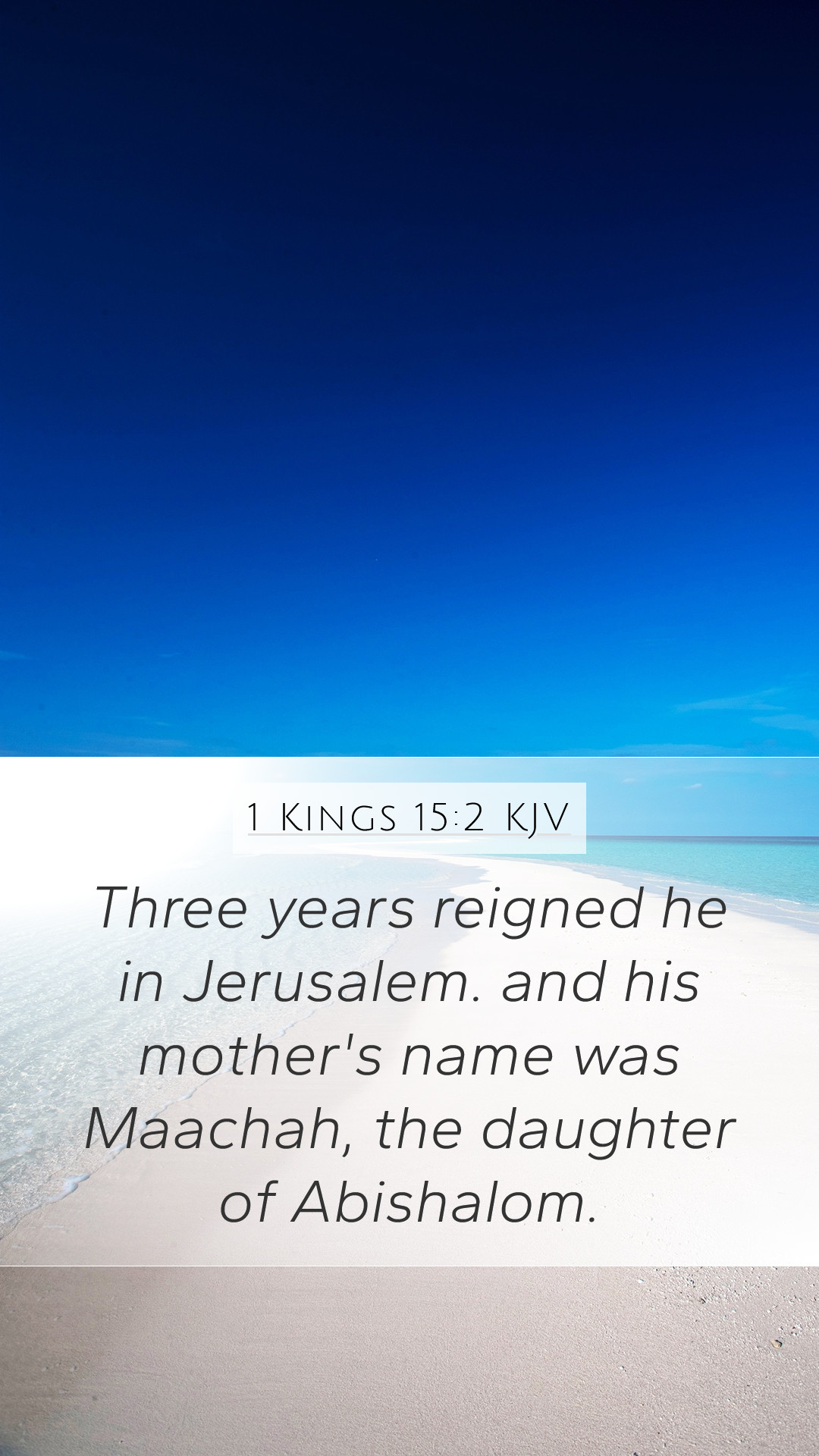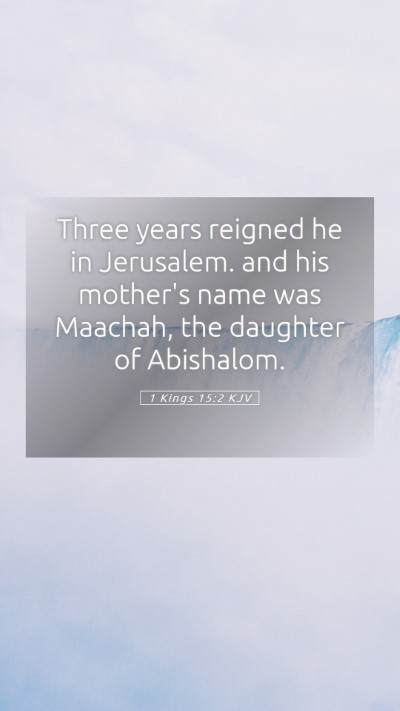Bible Verse Interpretation: 1 Kings 15:2
1 Kings 15:2 states: "And he reigned three years in Jerusalem. And his mother's name was Maachah, the daughter of Abishalom." This verse introduces the reign of Abijah over Judah, providing essential context for understanding his character and leadership. Below is an analysis of this verse based on insights from public domain commentaries by well-respected theologians.
Summary of Commentary Insights
This verse serves as a pivotal moment in the historical narrative of the kings of Judah, providing details that reveal Abijah's lineage and the significance of his mother.
1. Reign Length and Significance
Matthew Henry notes that the mention of Abijah's three-year reign may indicate a brief but impactful period that contributes to the larger narrative of Israel's kings. The brevity of his reign suggests challenges and conflicts faced during his rule, pointing to the instability in the kingdom of Judah.
2. The Role of the Maternal Lineage
Albert Barnes emphasizes the importance of Maachah as Abijah's mother. He indicates that a king's maternal lineage often played a significant role in defining their policy and legitimacy. By mentioning Maachah, the text underscores her influence and the potential impact of her heritage from Abishalom on Abijah's decisions and governance.
3. Historical Context
Adam Clarke provides insights into the historical context surrounding Abijah's reign. He points out that Abijah's short rule must be viewed against the backdrop of the strained relationships between the kingdoms of Israel and Judah. The difficulties and divisions in the nation would bring about challenges that marked Abijah's leadership.
Key Themes and Applications
- Legacy and Influence: The verse emphasizes the significance of family heritage in the lives of leaders. In Bible study groups, this can lead to discussions about the influence of parental roles in shaping one's character and decisions.
- Short-lived Rule: The lesson from Abijah’s brief reign can be used to demonstrate how success in leadership is not solely determined by the length of time in power, but also by the impact and effectiveness of that tenure. Online Bible study platforms may find this applicable in discussions on leadership.
- Conflict and Governance: Understanding the historical context of conflict during this period can offer insights into how ingoing struggles affect leadership decisions. This is a vital topic in Bible study lessons focused on Old Testament history.
Cross References
- 2 Chronicles 13 – This passage provides a more detailed account of Abijah’s reign and his conflict with Jeroboam of Israel.
- 1 Kings 14:31 – This verse gives background information about the kingship of Abijah and the legacy of his father, Rehoboam.
- 1 Kings 15:1 – Discusses the reign of Abijah’s father and his impact on Judah, setting a foundation for understanding Abijah's rule.
Conclusion
1 Kings 15:2 serves as a vital verse in understanding the historical and theological context of the Old Testament. The insights from Matthew Henry, Albert Barnes, and Adam Clarke encourage a thorough Bible study analysis that can help deepen one’s understanding of Scripture and its applications to daily life. Whether one is participating in a Bible study group or engaging in personal study, this verse invites believers to explore broader themes of leadership, influence, and the significance of family legacy.


